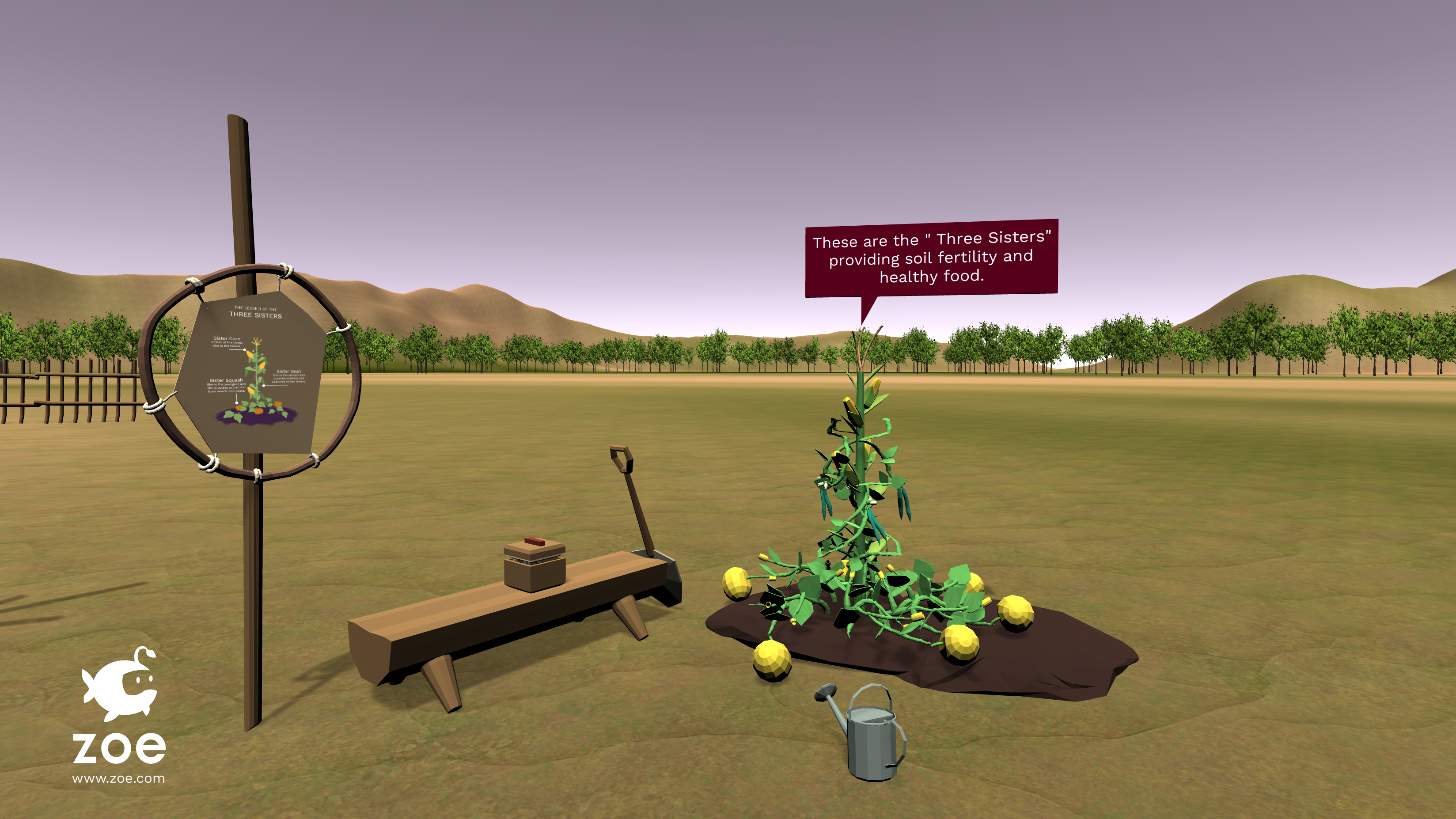
Zoe XR
Course Overview
"Zoe for Unity" is a no-code plugin allowing you to create interactive VR experiences. In this tutorial we are going to reproduce an ancient and sustainable planting system called the “Three Sisters”.
Scenario: You find yourself in an abandoned farm. Some objects and structures of a native tribe remain there. You see a sign with a diagram called “The Legend of the three sisters” and a box on a wooden bench . As you discover what is inside the box you realise you will have to wake up the spirit of the three sisters by reproducing an ancient system of planting that will bring back life to your farm.
Resources
Languages available:
Educator Resources
ENGAGE
What do you know about pesticides?
Are they good or bad?
Do you know emerging or ancient sustainable ways of planting?
DEEP-DIVE
Introduce the 3 sisters system and ask students to research about it.
Where does it come from?
Are there different versions of it?
EXPLAIN
Each group of students or each student does a presentation about what he/she found and what they thought was most interesting to them and why. Q&A
CREATE
Design
Ask students to imagine an experience explaining / showcasing the 3 sisters system.
Constrain: there is a drawing somewhere in the experience as a diagram that users can base themselves on.
-> outcome of this step is an Interactive Experience Poster and a diagram about the 3 sisters
Implement
- Create necessary assets for the experience: the diagram will be part of the experience, and if students are comfortable creating 3d models (using Google Blocks or any other) they can also model their own assets. Otherwise we provide them inside the package.
- Place assets, create the scene with the basic environment
- Start creating interactions with Zoe.
Test / peer-review
Invite students to test their experience at every significant step in order to adjust interactions, position of assets, sounds etc. Check on every group the progress and be a user tester for them so they can improve their creations.
At some point also make other groups test the other’s experiences and give feedback. Make sure feedback is constructive always mentioning positive points and suggesting improvements.
Repeat the 3 sub-processes until the experience is polished.
SHARE
As soon as the experience is done it is time for a larger audience to live it.
You can invite the whole classroom to test their creations.
Important here is that other groups learn about sustainable farming by playing the different experiences.
EVALUATE
If necessary you can evaluate what students learned from other groups creations, as a final wrap-up on the different topics that were raised during the creation and testing of the experiences. For example you can ask them about the three sisters, about how plants work and help each other, about natural systems in general, if they were inspired to plant their own food...